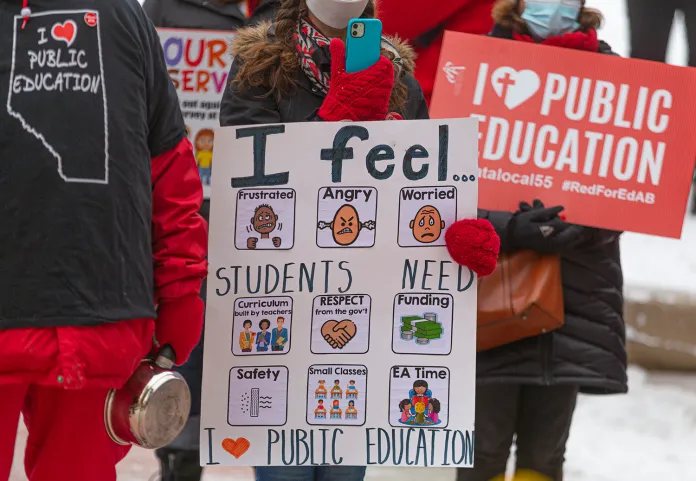Scale and Scope of the Strike
Teachers in Alberta walked off the job beginning October 6, 2025. The strike affects approximately 750 000 students across 2 500 public schools. The union representing educators reports 95% of its members supported the action earlier this year.
Key Issues Driving the Dispute
The demands from teachers include:
- Smaller class sizes, especially for students with additional special-needs support.
- Improved working conditions and adequate staffing.
- Salary increases that match inflation and cost-of-living pressures.
The provincial government and educators remain at odds over how to balance budget constraints with these demands.
Impact on Students and Families
Because the strike continues into its third week, many families face disruptions. Parents struggle to arrange childcare or adjust to unexpected home-schooling.
Students report uncertainty and stress over lost instructional time. Educators warn that prolonged job action may deepen learning gaps, particularly for vulnerable students requiring extra support.
Political and Financial Implications
For the provincial government, the strike presents both budgetary and reputational risks. Alberta’s education system must maintain quality and access amid mounting pressure.
Meanwhile, the union’s strong support signals widespread frustration among educators. The dispute draws attention to how education funding, policy and labour relations interplay in Canada’s provinces.
What Comes Next
Negotiations are scheduled to resume, yet no full agreement has emerged. Monitoring the next 7–10 days will be critical: either side could pivot.
If the strike continues, the province may consider mediation or alternate dispute-resolution tools. Stakeholders warn of cascading consequences if schooling remains interrupted.
Alberta’s education system stands at a crossroads. The ongoing strike by more than 51 000 teachers highlights deep structural tensions over class size, pay and student support.
While both sides claim to prioritise student learning, the delay in resolution threatens academic progress and trust. The resolution of this dispute may serve as a blueprint for other provinces facing similar pressures.











